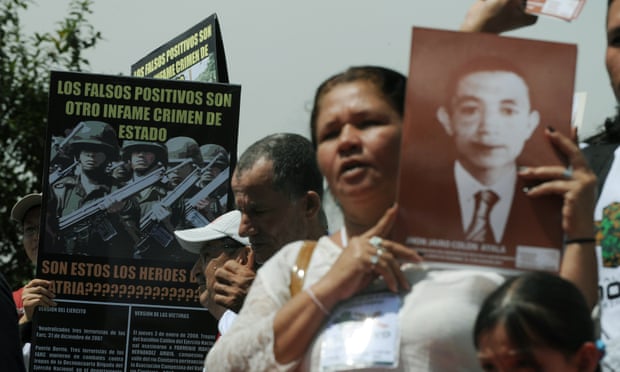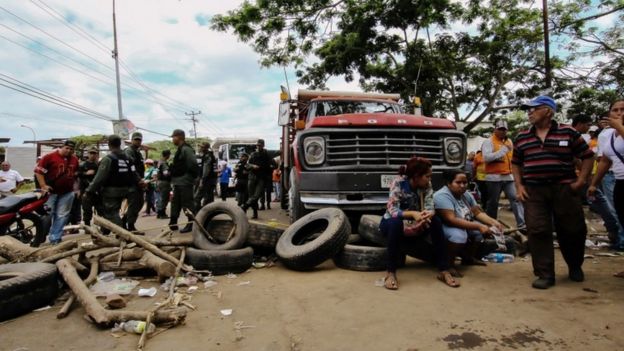By Kaitlyn Degnan
Impunity Watch Reporter, South America
BOGOTA, Colombia — Colombian authorities have arrested a number of high ranking members of the Colombian military for involvement in the false positive killing scandal, including General Mario Montoya. Montoya is the former commander of the National Army. He is facing accusations of war crimes for his complicity in the “killing and promoting of killing of thousands of civilians.” He faces 40 years of imprisonment.

During his time as commander, the Colombian army is thought to have engaged in a number of extrajudicial killings – killing civilians and then reporting the deaths as paramilitary casualties. Troops were rewarded with bonuses and vacation days for high paramilitary body counts. At least 3,000 – 4,000 civilians are thought to have been killed between 2002 and 2008. Montoya was allegedly aware of the false positive killings, and failed to take any action or report it. 800 members of the Colombian security forces have been convicted of involvement in false positive killings, and hundreds more are still under investigation.
Montoya was detained on March 29 after being called for questioning by prosecutors. Prosecutors announced an intention to detain Montoya following the arrest of General Henry Torres for the deaths of a father and son, Daniel Torres Arciniegas (38) and Roque Julio Torres (16). They were killed in 2007 and reported as guerillas killed in battle in Casanare. Torres was in charge of the military unit stationed there at the time of the killings.
Around the same time as the arrests, NGO Human Rights Watch released a report warning that the upcoming peace agreement between the Colombian government and FARC could provide impunity and allow perpetrators of false positive killings to escape justice. The cases would fall under the jurisdiction of the special peace tribunals. Under the upcoming peace agreement, those tried by the tribunals who confess will not face jail time and instead face a maximum sentence of eight years of labor.
Jose Miguel Vivanco, the Americas director at Human Rights Watch, has called the agreement “a checkmate against justice.”
For more information please see:
Colombia Reports – Colombia justice deal could grant soldiers impunity – 28 March 2016
Guardian – Colombia arrests army general decade after killing of civilians – 28 March 2016
Human Rights Watch – Colombia: FARC Pact Risks Impunity for ‘False-Positives’ – 28 March 2016
Voice of America – Colombia Arrests Army General for Extrajudicial Killings – 28 March 2016
Colombia Reports – Why Colombia’s former army chief is facing 40 years in prison – 29 March 2016



